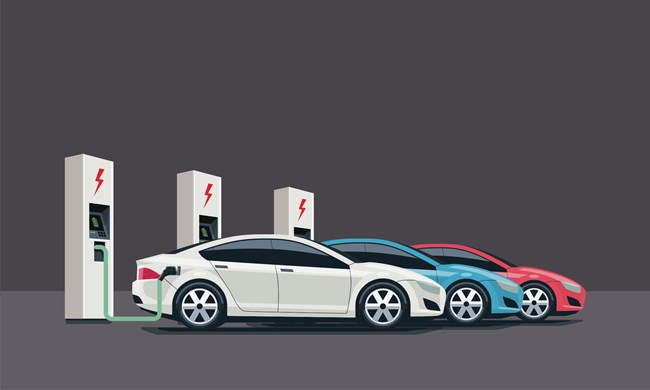
The start point for the best source of fleet information |
Effects of fleet electrification on incident management milder than expected, research finds
Date: 20 July 2022 | Author: Sean Keywood

Transitioning UK fleets to electric power is proving smoother than managers expect from an incident management point of view, according to research by AX.
The incident management provider surveyed 151 fleet managers, and found that over half of those yet to adopt EVs expected an increase in vehicle downtime due to accidents following electrification.
However, among those that had already electrified, only 24.2% had seen such an increase.
In addition, the survey also showed that 44.2% of non-EV fleet managers expected an increase in cost of maintenance. However, only 20.2% of fleet managers that had already started EV uptake said the cost of maintenance had risen.
The research was carried out for a white paper entitled 'Fleet EV Adoption 2022: Are UK businesses adapting to the accelerated electric vehicle revolution?'.
AX said that its findings showed there remained uncertainty among UK businesses about how electrification would affect them, and suggested this might explain why 34.4% of those surveyed had yet to start the process.
AX Automotive managing director Scott Hamilton-Cooper said: "According to our survey, businesses that are yet to electrify their fleets are noticeably nervous about implementing changes. Despite the accelerated rate of EV uptake, there are still myths perpetuating that are hampering its progress - as our report suggests.
"There is clearly a significant discrepancy between the expectation and reality of electrification. Yet, the discrepancy we have identified in our white paper suggests that if businesses are fully informed of how the switch to electric is likely to affect them, then their EV transition journey will be smoother than anticipated."
Although the effects of EVs on downtime are less than expected, the white paper does acknowledge that more than twice as many electrifying businesses have seen an increase in downtime than have seen a decrease, which it attributes to the increased amount of time needed for EV repairs, for reasons including additional safety requirements for technicians working on them. AX said the length of courtesy rentals provided while EV accident repairs were being carried out was four days longer on average than for non-EVs.
AX also noted that it was finding EV accident repairs were on average 58% more expensive than those for ICE vehicles, although it said this could be due to a significant proportion of EVs being premium models.
Among the paper's other findings was that charging infrastructure was a significant concern and barrier to EV adoption, including the slow implementation of workplace charging points, with 52.3% of fleet managers surveyed saying this was one of the greatest challenges they faced.
The research also found that, while 40.4% of fleet managers said they were under pressure to electrify, this pressure was more likely to come externally than from inside their own organisations.
Hamilton-Cooper said: "In one sense the feeling of external pressure is understandable given the amount of media coverage and the scale of government planning and regulation, but in another, it shows that the driving force behind electrification is not currently coming from inside the businesses.
"Environmental, societal and governance (ESG) pressures are likely to be a major external factor, but our research suggests that these influences may not be translating into company policy, targets and action. This may be due to a lack of awareness regarding the commercial benefits of incorporating EVs into a business fleet."










